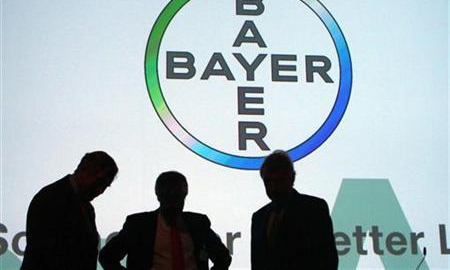Compulsory Licence Upheld but Pricing Guidelines Waiting in the Wings
India’s Intellectual Property Appellate Board (IPAB) yesterday upheld the country’s first compulsory licence to a generic manufacturer for Bayer’s cancer drug Nexavar. The ruling sets a legal precedent for further patent challenges but new pricing guidelines may act as something of a safeguard.

India's patent appeals office has rejected international drug maker Bayer's plea to stop local drug manufacturer, Natco Pharma from manufacturing a cheaper generic version of the firm’s patented kidney and liver cancer treatment. The German company had filed an appeal against the IPAB's decision in March 2012 to issue a compulsory license to Natco, arguing that their high prices would not have a detrimental effect on public interest as another company was selling the drug at a lower price.
This latest ruling points towards a future that could impact the profits of many multinational drug makers operating in the country, while allowing for poorer populations to access much needed life-saving treatments. For example, Bayer sells a one month supply of Nexavar for about $5,600 while Natco's version would cost Indian patients $175 a month. In an on-going battle with Indian patent legislation, these large drug manufacturers argue the Asian nation is discouraging innovation by reducing the incentive for big companies to invest time and money to discover drugs.
The Indian government has acknowledged the need to balance intellectual property rights with the rights of people to get access to new and expensive medicines, its Department of Pharmaceuticals (DOP) publishing a set of proposals late last month concerned with the control of the prices of patented drugs. If implemented, these guidelines could lead to more multinational drug companies being forced to sell medicines at a third of their usual prices. Yet it may be a small price to pay in return for patent protection and a higher market share in such an attractive emerging market.
There were those who naturally welcomed the IPAB decision – consumer advocates and other generic pharma firms – as they believe that the cost of brand-name medicines essential for the well-being of the largely poor populace in the developing country has been too high. And Bayer do not suffer a total loss in the current agreement as they are receiving mandated royalties from Natco of 7% (up from 6% last year). Nonetheless, the company is planning another appeal on the basis that the company has a patient access programme in place in India for Nexavar which “significantly reduces the cost of the monthly treatment”.
The importance of this case lies in the standard it sets for future legal patent battles in India. Big Pharma will be no doubt following the next appeal process intently, hoping for a final ruling that falls in favour of the international company. But the real glimmer of hope lies with the implementation of the DOP’s new pricing proposals. If approved, the guidelines should stem the tide of the legal patent war – a move that may be welcomed by international drug manufacturers working in the region, despite the associated blow to profits.
